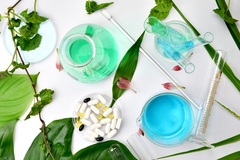US FDA finds bacteria-contaminated water in Tom’s of Maine toothpaste

Tom’s of Maine is facing significant violations after a manufacturing facility inspection discovered bacteria-contaminated water and a “black mold-like substance” near production equipment, according to a warning letter issued by the US Food and Drug Administration (FDA).
The FDA found microorganisms in water samples and consumer-ready toothpaste products. The brand is most known for its oral care products, but two kinds of toothpaste contained bacteria hazardous to human health.
The inspection, conducted across two weeks in May at a Maine, US, facility, resulted in a warning letter sent on November 5 to parent company Colgate-Palmolive. The letter, which was made public last week, highlighted the risks associated with contaminated water used in toothpaste manufacturing.

The letter accused the company of failing “to follow appropriate written procedures” but was not a formal recall. Personal Care Insights contacted the brand for comment but has not received a response.
Bacteria discovery
The FDA found the “black mold-like substance” at the base of a hose reel and behind a water storage tank in the facility, within a foot of equipment used for toothpaste production.
Tom’s of Maine, which positions itself as providing natural solutions, told the FDA in an earlier response that the black substance was later cleaned.
Pseudomonas aeruginosa — which can cause infections in the blood and lungs, according to the US Centers for Disease Control and Prevention — was detected in multiple water samples from June 2021 to October 2022.
 The FDA found bacteria in toothpastes from Tom's of Maine, raising health concerns.This water supply was used to manufacture Tom’s Simply White clean mint paste and for the final rinse of numerous equipment cleaning processes.
The FDA found bacteria in toothpastes from Tom's of Maine, raising health concerns.This water supply was used to manufacture Tom’s Simply White clean mint paste and for the final rinse of numerous equipment cleaning processes.
Tom’s of Maine said it is working with the FDA to remedy issues raised by the inspection. “We have always tested finished goods before they leave our control, and we remain fully confident in the safety and quality of the toothpaste we make.”
Another bacteria, Ralstonia insidiosa, was recovered from water points of use, which can cause disease to those who are immunocompromised.
Additionally, Paracoccus yeei, associated with several infections (peritonitis, conjunctivitis, bloodstream infections), was found in a final batch of Tom’s of Maine’s product Wicked Cool! anticavity toothpaste.
The investigator also observed powder residues in a stainless-steel tray near a batch of Silly Strawberry anticavity toothpaste.
FDA crackdown
The FDA said the company failed to qualify its water system and stressed the importance of having a system that “consistently produces water suitable for pharmaceutical use.” The company is tasked with making a remediation plan for the water system and monitoring whether the water is suitable for consumers based on “microbial count limits.”
“It is essential that your facility is in a good state of repair and sanitary conditions are maintained to protect drug products from potential routes of contamination,” said the warning letter.
The parent company, Colgate-Palmolive, was asked to provide:
- An assessment of the design and control of manufacturing operations.
- A review of all microbiological hazards.
- A risk assessment addressing the hazards posed by distributing over-the-counter drug products with “potentially objectionable contamination.”
- Investigations into all batches of products with potential microbial contamination.
The federal agency gave the company 15 days to respond and detail the work it would do to prevent future violations.
Toxicity in the industry
Brands across the personal care industry have been coming under fire for toxic substances being found in their products. Governement organzations and watchdogs have been calling out the personal care insutry for having harmful chemicals in their products.
Governement organzations and watchdogs have been calling out the personal care insutry for having harmful chemicals in their products.
Earlier this year, a peer-reviewed study identified several toxic metals in period products, prompting the nonprofits’ research. This prompted Toxin Free USA to discover lead in tampons by popular brand U by Kotex. The metal has no safe level in the body and can cause “serious health problems.”
The lab test resulted in a lawsuit against the brand owner, Kimberly-Clark, for alleged deceptive marketing of its period products.
Recent studies suggest some personal care products could expose girls to endocrine-disrupting chemicals (EDCs) and cause early puberty. EDCs mimic, block or interfere with hormones in the body’s endocrine system.
Following this discovery, the European Environmental Bureau argued that the European Commission (EC) was “prioritiz[ing] business interests over human and environmental health,” after a European Ombudsman investigation revealed the EC was delaying the ban of products that may cause cancer or infertility.
Personal Care Insights recently spoke to Gina Rum Kozol, co-founder of Vice & Virtue, about the need for increased discussion and regulation in the cosmetics industry regarding hormone-disrupting chemicals.












